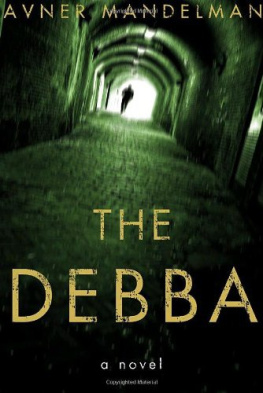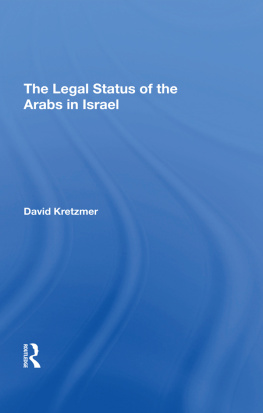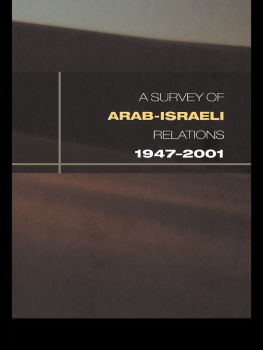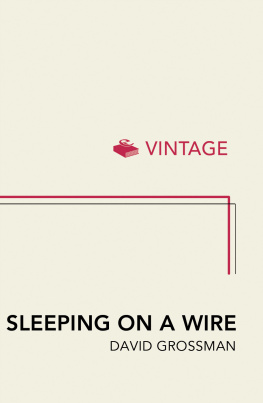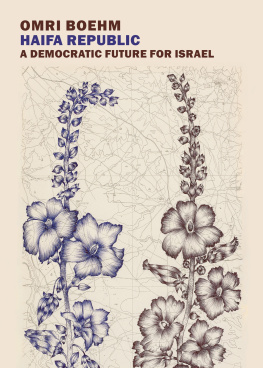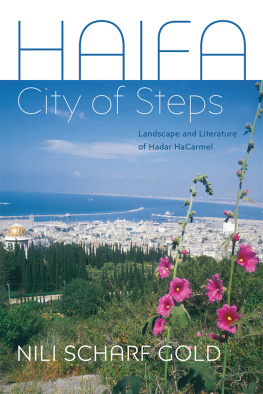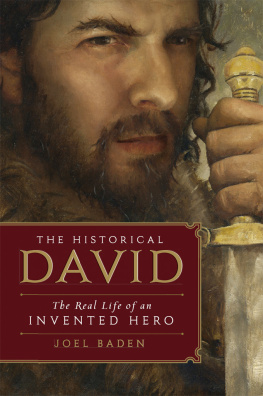
To my parents--and to A .
Contents
a cognizant original v5 release october 01 2010
Prologue
M EN IN MY FAMILY always left their place of birth. When my father was seventeen years old he bought passage on a boat to Yaffo. It was a two-way ticket. The British, who ruled Palestine then, would never have let him enter without it. He did not have an immigration certificate.
I am told he was a quiet, slim youth, strangely intense, and fierce when aroused. My grandfather once had to buy off the head of police after my father had beaten up the son of a rich barrel merchant. The young goy taunted my father and called him a dirty Jew. The taunter was big and fat, and smoked cigarettes. My father, who was half the goy's size, almost killed him with a stick he had grabbed from a lame old charwoman. It took three policemen to tear my father off his victim.
Aunt Rina, who was eight then, claims no one could pry the stick from my father's hand. Finally the chief of police broke my father's thumb with a hammer. They put my father in jail, where he stayed for four days. He was fifteen at the time.
Aunt Rina, who now lives in Toronto, was hopelessly in love with him then. Half the town beauties were. Even now, at the age of sixty-seven, when she speaks of him her eyes light up and her husband, Yitzchak, looks aside or busies himself with a book.
When I asked my father why his thumb was crooked, he said it had bent when he sucked on it, as a baby. My father had beautiful hands and the crooked thumb was glaringly noticeable. Only when I was old enough to talk to my uncle Mordechai as an equal did I learn the true story.
It had cost my grandfather two thousand zloty, a fortune, to get my father out of jail. When my father finally came home he was sick for a month. Wild stories circulated. He had been beaten up. Two of his front teeth were missing. Some said he was raped by the guards, who had been bribed by the rich merchant. These were old Cossacks who remained from the days of the Russian occupation. They were short and thickset and their sexual appetites were legendary.
My father kept to his bed for two weeks. He did not notice anybody. All the time he was in bed he was sharpening a long knife he had made.
My grandfather was in the leather trade, and there were many knives around the house: small knives for trimming fine leather used in ladies' slippers, flat knives for splitting raw leather, and sharp, long blades for cutting through tough hide. My father made a new knife from a saw blade and sharpened it endlessly--no one could make him stop. My grandmother cried and begged him, but he paid her no heed. When she brought him chicken broth, he would sit up in bed, hide the knife under his thigh, and eat. Then he would pull it from under the covers and start all over again.
My grandfather was a tall, husky Jew. He had a thick black beard and testy blue eyes. His one passion was the cards. The only one who could beat him at a card game was my father. When my father lay in bed recuperating, they played cards every night, and talked. My father would not surrender his knife. Each morning, when the shiksa maid peeked through the keyhole, she saw him spitting on the black whetstone, and soon the srik-srak, srik-srak sound recommenced.
It was autumn and just before the High Holidays. The atmosphere in town grew tense; there was talk of a pogrom. The Cossacks at the town jail muttered among themselves. All the Jews were nervous.
On the eve of Yom Kippur the rabbi, Reb Itzelle Tuvim, came to the house. Aunt Rina says his face radiated light. To hear her tell it, he was walking on an inch of air. He came in, washed his hands at my grandfather's porcelain basin, and ate a piece of challah. Then he went into my father's room and closed the door behind him.
This was just before the Large Supper, the last meal before the fast, and the yard was teeming with beggars and the needy. The day before, my grandfather had sold a hundred pairs of felt boots to the hetman of the Cossacks, and in celebration my grandmother cooked tshulent for all the town's poor Jews, to fortify them for Kol Nidre, the Yom Kippur eve prayer that annuls all vows.
But the Kol Nidre was delayed. Reb Itzelle remained closeted with my father for three hours. Finally the door to my father's room opened and Reb Itzelle emerged. He was pale, says Aunt Rina, and his hand trembled. In his right hand he held the knife, its blade pointing upward, like a lullav in Succoth. Wordlessly he laid it down on the cabinet, on which it remained, untouched, all during the Day of Atonement. Then he went to the synagogue and chanted the Kol Nidre. Two and a half years later my father left for Palestine, taking with him all his wooden lasts, his shoe templates, and a few favorite knives. His phylacteries he left behind.
He landed in Yaffo, after an eleven-day sea voyage, on the eve of Purim, 1922. He almost didn't make it. During the landing the rowboat taking him ashore capsized near the Rock of Andromeda and he and two other passengers--another Polish boy (one Paltiel Rubinsky) and an elderly Briton--nearly drowned. The Arab boatman jumped into the churning waves and rescued all three.
I still have a torn copy of the Yaffo biweekly Fillastin , carrying a faded photograph of the event. It shows two men: the hero, chief boatman to Messrs. Thos. Cook & Son, a broad-shouldered young swain in a striped bathing suit with slightly effeminate lips, squinting shyly into the camera, and on his left a portly Briton, lank hair hiding his eyes and nose, clasping his rescuer's reluctant wrist. To the right, a boat's bow intrudes into the picture; a faint line at its edge may be an oar. Of the two young Jews there is no sign. This was a mere ten months after the May Day riots in Yaffo, at which twenty-one Jews (among whom were two full-fledged poets) were slaughtered. Showing disembarking Jews on the front page could have sparked fresh riots.
The Arab hero can be seen clearly in the photograph, though his name is smudged by a yellow stain; but the Briton is clearly identified. He is Sir Geoffrey Mewlness, publisher of the London Grand , on pilgrimage to the Holy Land for his health. The article notes that upon his return to London, Sir Geoffrey thanked the directors of Thos. Cook & Son in person for his rescue, and sent a hundred gold sovereigns to the Yaffo boatman in gratitude, and a gold watch to each of his boat-mates, in memory of the miracle that had befallen them in the land of the Bible. Both watches were expertly inscribed with the Hebrew prayer of thanks, HaGommel, in Rashi script.
Paltiel Rubinsky (who later changed his name to Rubin) right away gave his watch to a Yemenite actress. My father, after hanging on to his for three years, at last sold it in 1925 for fifty gold pounds to his landlord, a Mr. Efraim Glantz, with whom he and Paltiel Rubin had taken rooms in Tel Aviv the day after their arrival. With this money my father opened his cobblery and shoe store on Herzl Street, taking in Paltiel Rubin as a salesman, and in that same store he worked on and off throughout the Events of 1936-39, before finally closing it in 1946, as he began rising in the ranks of the Haganah, the budding Jewish resistance, and later, in the Israeli Army. But a day after Ben-Gurion signed the Armistice agreement in 1949, my father left the army and went straight back to that same store, where, taking neither helpers (Paltiel was dead then) nor vacations, he kept cobbling heels and selling sandals, until the day of his murder.
PART I
Jahilliyeh
(The Age of Ignorance)
I T WAS IN T ORONTO in 1977, seven years after I had last seen him, that I learned of my father's murder. When the phone rang I half expected to hear Aunt Rina's voice, inviting me to the Passover seder. Instead I heard the line crackle and a faint voice said, "Starkman? David Starkman?"
Next page
